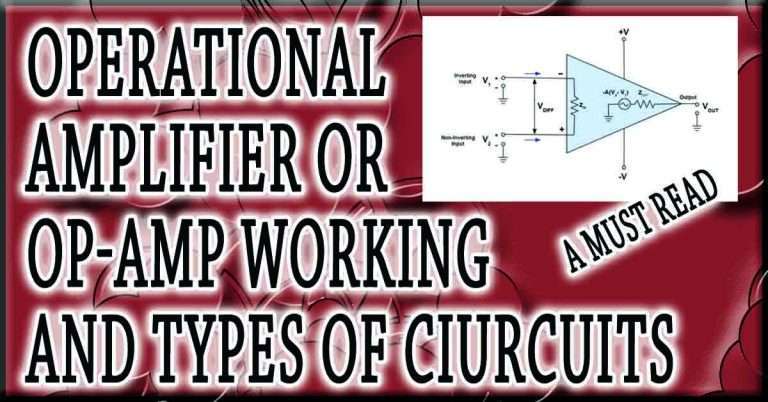Electrical Engineering Short Courses That Lead to High-Paying Roles
In today’s fast-changing job market, the ability to upskill quickly is a major advantage. For those interested in the electrical field, short-term training can open the door to rewarding opportunities without spending years in a traditional degree program. Whether your goal is to become a licensed technician or to move into a specialized engineering role, electrical engineering short courses provide an efficient path to better earnings and job stability.
Table of Contents
Table of Contents

For example, the best electrical programs in USA allow learners to complete intensive hands-on training within months and start working in high-demand industries. The same applies across Europe, where industry certifications and vocational diplomas are valued by employers in construction, manufacturing, energy, and renewable sectors.
In this guide, we’ll cover the best short courses in the USA and Europe, potential salaries, essential skills gained, and career transition tips to help you make an informed decision.
Upskilling in a Short Time – Why Short Courses Work
Traditional four-year electrical engineering degrees are valuable but require significant time and financial investment. Short courses, on the other hand, are focused, affordable, and practical. They aim to prepare you for real-world work environments within weeks or months.
Short programs often include:
- Hands-on labs for installation, testing, and troubleshooting.
- Industry-standard certifications that employers recognize.
- Specialization options such as renewable energy, automation, or electrical safety.
- Flexible formats—full-time, part-time, or online learning.
This means you can complete training while working another job, making career changes faster and more achievable.
USA – Best Electrical Engineering Short Courses
In the United States, there is a wide range of electrical technician training options designed for quick job entry and high pay potential. Many of these programs are offered by community colleges, trade schools, and union apprenticeship programs.
1. Electrical Technician Certificate Programs
- Duration: 4–6 months.
- Content: Covers residential wiring, blueprint reading, and safety codes.
- Benefits: Prepares you for entry-level positions with opportunities to specialize later.
2. Industrial Electrical Maintenance Training
- Duration: 3–5 months.
- Focus: PLCs, motor controls, electrical schematics.
- Ideal for: Manufacturing and plant maintenance roles.
Compare salaries in our guide on 6-Month Electrical Programs in USA vs. Europe – Which Pays More and choose the most profitable path.
3. Renewable Energy Installation Courses
- Duration: 2–4 months.
- Content: Solar PV system installation, wind turbine maintenance.
- Relevance: Tied to the growing renewable energy sector.
4. Electrical Safety and Code Compliance Certification
- Duration: 1–2 months.
- Purpose: Meets OSHA and NEC standards for workplace safety.
- Career impact: Adds a compliance advantage to your skill set.
5. Online Electrical Theory & Troubleshooting Bootcamps
- Duration: Flexible, self-paced.
- Ideal for: Professionals seeking theory upgrades without leaving work.
These courses often lead to roles in residential, commercial, and industrial electrical systems, with the potential to earn above-average salaries—especially after gaining experience.
Europe – Best Electrical Engineering Short Courses
Europe offers a diverse mix of electrical engineering short course Europe options, often designed to meet strict EU electrical safety and performance regulations. Depending on the country, training may be offered through vocational schools, universities, or specialized institutes.
1. City & Guilds Electrical Installations (UK)
- Duration: 3–6 months.
- Recognition: Widely accepted across the UK and Commonwealth countries.
- Modules: Electrical science, installation design, inspection, and testing.
Choose from the Top Trade Schools in USA & Europe with High-Paying Electrical Programs to get certified fast.
2. European Certified Electrician Program
- Duration: 4–6 months.
- Recognition: EU-wide professional qualification.
- Content: Domestic and industrial wiring, renewable integration, safety compliance.
3. German Handwerkskammer Electrical Technician Training
- Duration: 6 months full-time.
- Focus: Industrial automation, energy systems, safety codes.
- Strength: Strong apprenticeship connections with German manufacturers.
4. Renewable Energy Technician Courses (Denmark, Spain, Netherlands)
- Duration: 3–5 months.
- Specialization: Solar PV, wind energy, energy storage systems.
5. Electrical Maintenance & Troubleshooting (France & Italy)
- Duration: 2–4 months.
- Ideal for: Building maintenance, industrial repair, and manufacturing.
European short courses are often tied to apprenticeship schemes or government-funded upskilling programs, making them accessible and affordable.
Pay Scale for Technicians & Engineers
Earnings depend on the region, skill level, and certification, but short courses can quickly lead to competitive salaries.
| Role | USA Average Annual Salary* | Europe Average Annual Salary* |
|---|---|---|
| Entry-level Electrical Technician | $45,000 – $55,000 | €25,000 – €35,000 |
| Experienced Industrial Electrician | $60,000 – $80,000 | €35,000 – €50,000 |
| Renewable Energy Installation Specialist | $55,000 – $70,000 | €30,000 – €45,000 |
| Electrical Engineer with Certification | $75,000 – $100,000 | €40,000 – €60,000 |
*Figures based on industry surveys and labor statistics.
Completing short-term electrician certification USA can help you reach the higher end of these ranges faster, especially in sectors like manufacturing, oil & gas, and renewable energy.
Skills Gained from Electrical Engineering Short Courses
Short courses focus on practical, job-ready skills that are immediately applicable in the workplace. Key competencies include:
- Electrical wiring and circuit design (single-phase & three-phase systems).
- Troubleshooting and diagnostics for electrical faults.
- PLC programming and automation systems.
- Compliance with NEC, IEC, and local codes.
- Use of testing instruments like multimeters, insulation testers, and oscilloscopes.
- Energy efficiency and renewable system integration.
These skills not only boost employability but also make it easier to transition into specialized roles or pursue advanced certifications later.
Career Transition Advice
For career changers, the transition into the electrical field can be smooth if approached strategically.
1. Start with a Foundation Course
If you lack electrical background, start with a basic electrical trade school programs USA course to build core competencies.
2. Specialize Early
Choose a niche—industrial maintenance, renewable energy, or automation—based on industry demand in your area.
3. Get Certified
Industry-recognized certifications help employers trust your abilities, especially for safety and compliance.
4. Network with Industry Professionals
Attend trade fairs, join electrical associations, and participate in online technical forums.
5. Continue Learning
Short courses are a starting point—many technicians move into supervisory or engineering positions by pursuing advanced diplomas or part-time degrees.
Conclusion – Turning Short-Term Training into Long-Term Success
Short courses in electrical engineering offer a fast-track route to high-paying, in-demand jobs in both the USA and Europe. Whether you aim to work as a residential electrician, an industrial maintenance technician, or a renewable energy specialist, these programs provide practical skills, recognized certifications, and strong earning potential.
By choosing wisely and aligning your training with market demand, you can quickly move from learning to earning. For more guidance, check our high-paying electrician training in USA guide to explore top-rated programs and career pathways.
Follow Us on Social:
Subscribe our Newsletter on Electrical Insights for latest updates from Electrical Engineering Hub
#ElectricalEngineering, #ShortCourses, #HighPayingJobs, #EngineeringCareers, #ElectricalTechnician, #EngineeringEducation, #TechTraining, #EngineeringJobs, #CareerGrowth, #ElectricalEngineeringJobs, #EngineeringShortCourses, #ElectricalSkills, #EngineeringSalary, #TechnicalTraining, #EngineeringOpportunities


